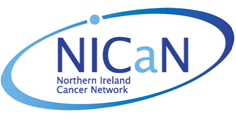23/03/2020

Information for people with cancer in Northern Ireland download
COVID-19, or coronavirus, is a new illness that can affect your lungs and airways. Generally, these infections can cause more severe symptoms in people with weakened immune systems, older people, and those with long-term conditions like diabetes, cancer and chronic lung disease.
How is COVID-19 spread?
Spread of COVID-19 is most likely to happen when there is close contact (within 2 metres) with an infected person. It is likely that the risk increases the longer someone has close contact with an infected person. The virus is most likely to be spread when an infected person coughs or sneezes, in the same way colds spread.
It is also possible that someone may become infected by touching a surface, object, or the hand of an infected person and then touching their own mouth, nose, or eyes.
How to reduce spread?
- Wash your hands often – with soap and water, or use alcohol sanitiser that contains at least 60% alcohol if handwashing facilities are not available – this is particularly important after taking public transport. Guidance is available on hand washing .
- Cover your cough or sneeze with a tissue, then throwing the tissue in a bin. See Catch It, Bin It, Kill It .
- Avoid touching your eyes, nose, and mouth with unwashed hands.
- Clean and disinfect frequently touched objects and surfaces.
Am I more at risk?
Some groups may be more at risk if they get infected by COVID-19. This may include older people and people with lowered immune systems, such as people living with cancer. It is important that people with cancer try to reduce their risk of catching COVID-19.
Those people with cancer who are more at risk of becoming seriously ill if they contract COVID-19 include:
- People with cancer who are undergoing active chemotherapy or radiotherapy.
- People with cancers of the blood or bone marrow such as leukaemia, lymphoma or myeloma who are at any stage of treatment.
- People having immunotherapy or other continuing antibody treatments for cancer.
- People having other targeted cancer treatments which can affect the immune system such as protein kinase inhibitors or PARP inhibitors.
- People who have had bone marrow or stem cell transplants win the last 6 months, or who are still taking immunosuppression drugs.
Several other factors are also likely to be linked with greater risk. These include
- age over 60
- pre-existing cardiovascular disease
- pre-exisiting respiratory disease.
Social distancing
You should try to minimise the risk of getting the COVID-19 infection by social distancing. Please refer to the latest government guidance on social distancing and advice for vulnerable people.
- Avoid contact with someone who is displaying symptoms of COVID -19. These include high temperature, and or new continuous cough.
- Limit social interaction
- Avoid non essential use of public transport, varying your times to avoid rush hour where possible.
- Work from home where possible
- Avoid large gatherings and small gatherings in smaller public spaces
- Avoid gatherings with family and friends. Keep in touch using remote technology, such as phone, internet and social media.
- Use telephone or online services to contact your GP or other essential services
Your cancer unit may seek to minimise the time people spend in hospital departments, for example:
- By enabling them to consult their healthcare teams by telephone.
- Having bloods performed at your GP practice where possible.
- Prescriptions being brought forward or provided to cover a longer period of time.
- By asking them to wait in their car until their appointment time.
- By limiting visitors and asking patients to come to clinics alone.
To protect individuals with cancer, it is essential that everyone in the household takes these steps to reduce the risk of transmission of COVID-19.
What are the symptoms of COVID-19?
The main symptoms are
- Temperature
- Cough
- Shortness of breath
What do I do if I feel unwell?
If you are on active cancer treatment and you feel unwell, contact your local cancer unit helpline for advice. You will have received this number on an alert card when your cancer treatment started. |
What do I do if I have had direct contact with someone with confirmed coronavirus?
If you have been in contact and have symptoms, ring your unit helpline. If you have had contact but no symptoms, get advice by contacting the NHS helpline, call 111.
Support
For social, emotional or practical support contact Macmillan Information Services in your local Trust area.
Useful links
Public Health England Guidance
